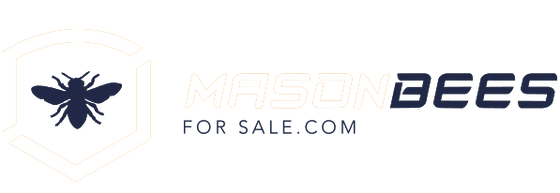Mason Bee Facts

Mason Bee General Facts:
Osmia Lignaria- Blue Orchard Bee, BOB, or Mason Bee belong to the family Megachilidae and are members of the Osmia Genus. Mason Bees are non- aggressive and non-colonizing solitary bees that pollinate orchards and gardens. They are metallic blue, black or green in color and about the same size as a house fly.

What do Mason bees pollinate?
Mason Bees are generalists; they don’t stick to certain blossoms they pollinate whatever they find and like. They pollinate the following best: apricots, almonds, apples, blueberries, cherries, nectarines, peaches, pears, plums, prunes, raspberries, strawberries, and flowers in the rose family.

How many mason bees do I need?
A single Mason Bee visits 20,000+ blossoms per day and pollinates 12 lbs. of cherries, a job for 60 honey bees. We recommend 10 Mason Bees per fruit tree. If you need help figuring out what bees you need check out our step by step guide.

Emergence:
Mason Bees are early spring time pollinators. They emerge when the weather is consistently 50-55* F, find a nest, and begin pollinating. Once a nest is chosen they don’t travel more than 300 yards, usually staying within 100 yards of their nest to pollinate. Their average nesting season is 6-12 weeks, after which they die. Their offspring will develop inside the tubes and will emerge for pollination next spring.

mason bee habitat
There are 3 essential items for prime Mason Bee habitat, 1. nesting place, 2. pollen, and 3. a mud source. They will only remain in an area if they have a proper habitat.
- Best nesting place for Mason Bees are in reed tubes; To read more on nesting materials click here.
- Early blooming pollen: willow, cherry, chokecherry, currants, raspberries, waterleaf, blackberries, hawthorn, and penstemon species work excellent.
- No clay = no bees. Mason Bees use clay mud to section off the cells of each tube and seal the end of each tube after laying their eggs. It is a special sticky clay, regular dirt, sand or bloomy soil won’t work. To get clay for your bees click here.
Climates with really high humidity along the coasts tend to have problems with Mason Bees flying away. If you live in this area leaf cutter bees tend to be a better option.
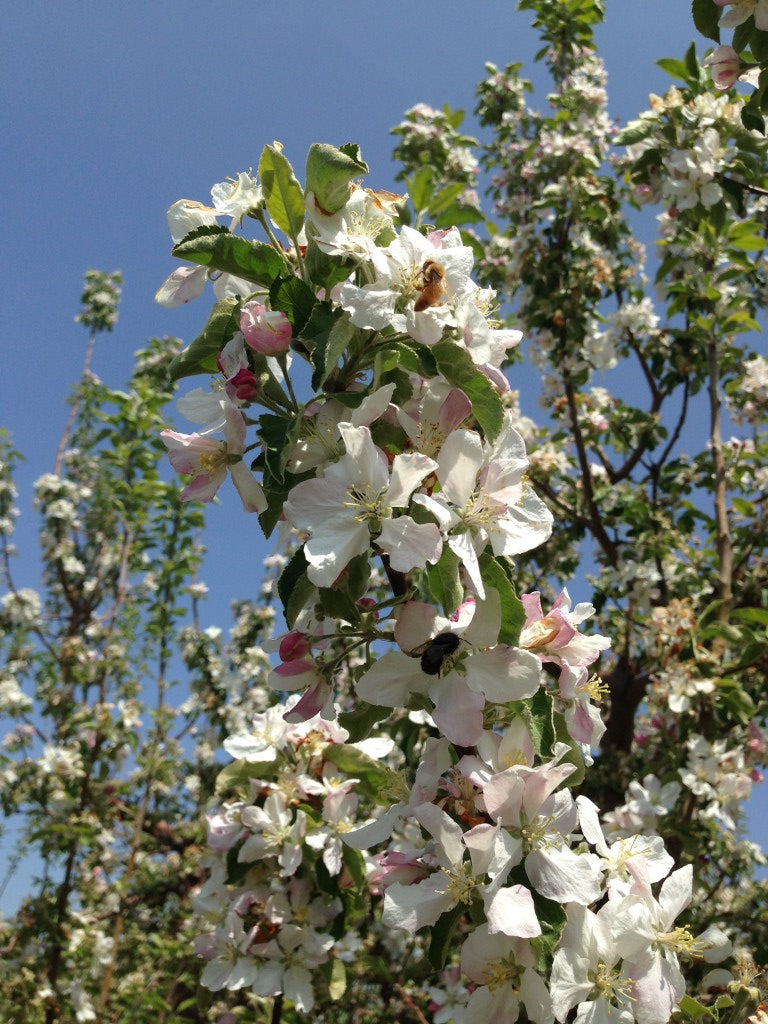
How to tell if your mason bees are working:
When honey bees are pollinating you can see huge swarms of bees around the tree. It only takes 10 Mason Bees to pollinate an entire tree so its harder to spot the pollination. Some signs that show your bees are working include: new tubes being filled with clay, activity around the bee house, spotting bees on the blossoms, or flying around (though they are harder to spot), and the bigger and better tasting fruits at the end of the season.
If you feel there is a problem with your bees check out our troubleshooting page here.

Storing Mason bees:
Mason Bees need to be kept cold to properly mature. Once you receive your bees keep them in a cold place such as the fridge, garage or cold storage. Store them below 40*F so they stay in hibernation from fall to spring. WARNING: If cocoons’ temperature exceeds 44*F for extended period of time they will not hibernate properly which may result in premature emergence and/or death.
Keep bees in cold hibernation until the temperature outside consistently exceeds 55*F and your blossoms begin to develop. Then it is time to place your bees in their bee house for releasing.

The Mason Bee House:
Place house facing between South and East. Bees are cold blooded and need the morning sun to warm them to begin flying. Bee houses should be in a secure place such as a tree, fence post, side of a house, barn or shed. Make sure bee house is at least 3 feet off the ground to deter ants. If you have squirrels in the area you may want to squirrel proof the houses with chicken wire. More details on how to set up your house click here. To find out how to prevent and manage pests click here.

Take down and winter Prep:
Osmia species require winter temperatures for successful emergence the following spring. In September take down the house (or cover) and place in a cold place until next spring. This will help keep parasites/predators away. If house is taken down early it can dislodge the larva from their food, be sure to store the house face up to keep the bees with their food source at all times. This is also the best time to replace used reeds and purchase new bees. Learn how to clean out bee house here.
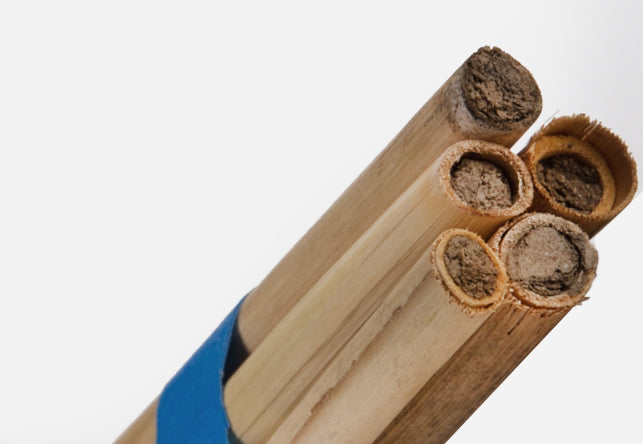
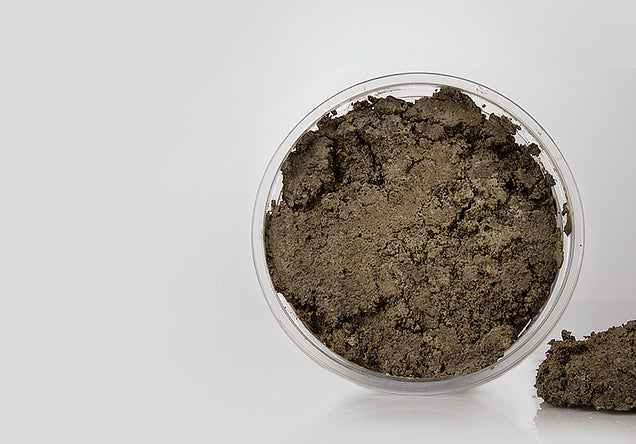
Mason Bee Clay
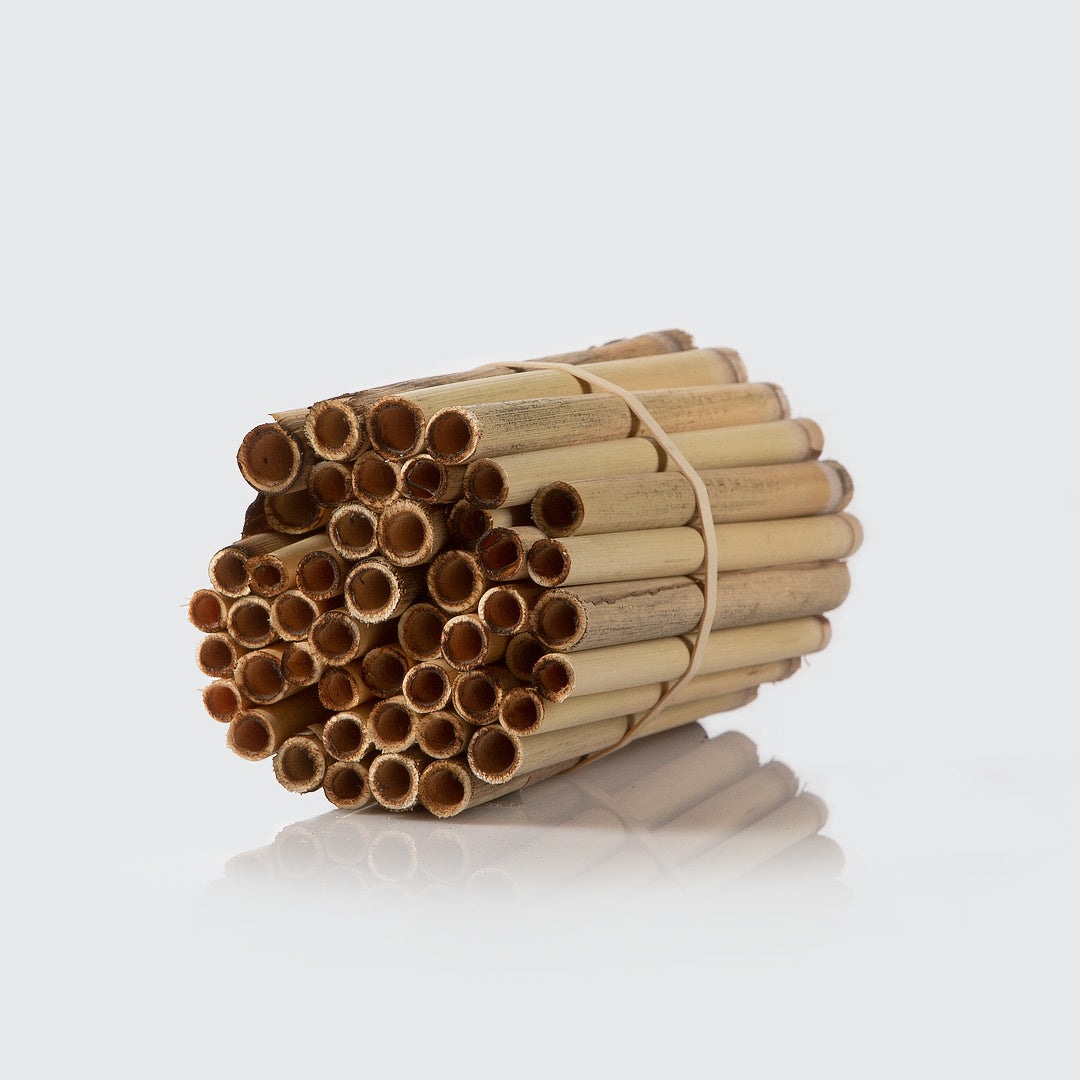
50 Reeds Large
Large Reeds about 5/16 inch in diameter, 6 inches long
Use for Mason Bees, Sunflower Bees, Osmia Texana, and Osmia Californica.
Contact us
At Mason Bees, we are here to answer any questions you may have. Whether you are interested in any of our products for you own personal garden or for your orchard, we have a solution for you. Feel free to reach us directly and we will respond as soon as possible.
Phone number: 8016489035
Email: masonbeesforsale@gmail.com
Address: Mason Bees LLC,
10090 N HIGHWAY 38, DEWEYVILLE UT 84309, United States
Get Mason Bees
Boost your garden's productivity by providing a Mason Bee House for peaceful, non-stinging bees. As bee populations struggle, home gardeners can play an important role in attracting bees and other pollinators
News & Updates
Sign up to get the latest on sales, new releases and more …
© 2026 masonbeesforsale.com. Designed by Out of the Sandbox. Powered by Shopify

